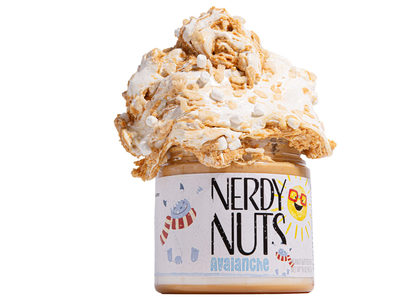 ARLINGTON, WASH. — Limited access to traditional Salvadorian food is what prompted Cynthia Duran to create Xinca Foods.
ARLINGTON, WASH. — Limited access to traditional Salvadorian food is what prompted Cynthia Duran to create Xinca Foods.
“I moved around a lot when I was working in my corporate jobs,” Duran said. “When I would go to the freezer section, I would try to find something that was closely related to it (Salvadorian food) and I couldn’t.”
Xinca Foods is the heart of Duran’s Salvadorian American heritage. The brand features curtido cabbage slaw, pupusas and a quesadilla pastry.
“Pupusas are a traditional Salvadorian dish, that is the one thing you find in El Salvador everywhere you go,” she said. “The curtido is the slaw that goes on top of the pupusa; you eat it together. The quesadilla dessert is made with rice flour and it does contain cheese. It’s a sweet dessert that you eat in the mornings or during the holidays.
“I grew up eating what my mom and grandma grew up eating. A lot of our family still lives in El Salvador. We’re still very close to the cuisine and I want to make sure we’re embracing that and it’s accessible for everyone.”
While the curtido and pupusas are often paired together, Xinca Foods sells them separately due to consumer preference from the broader Latino community.
“There’s those who don’t like to put a lot of curtido on the pupusas and there’s those who like a lot,” Duran said. “If we were to sell our curtido within our pupusas packaging, we would get a few complaints within our community saying there’s a little bit of curtido or not enough.”
When starting the business, scalability was at the top of her list to make sure the company ran smoothly later on.
“We’ve invested money into machinery that could make it easier and more efficient for us to scale,” she said. “We’ll be fully automated by 2025. We make sure our overhead cost is low, too.”
Xinca Foods’ products are manufactured in its 1,800-square-foot manufacturing facility in Burlington, Wash.
“We make everything from scratch,” Duran said. “Right now, we’re focusing on getting our manufacturing facility up and running again. We just moved into this bigger place and we expanded our capacity.”
Duran moved Xinca Foods out of its direct-to-consumer business because of the high cost and is focusing on foodservice and retail.
“Frozen (food) is super expensive to ship,” she said. “That’s the reason we’re doing more foodservice and retail.”
As a two-year-old brand, Xinca Foods has been bootstrapping since it started.
“My mom, boyfriend and I all pulled our money together and that’s how we came to this point now,” Duran said. “I withdrew my entire 401k and all my savings from my last corporate jobs. My boyfriend works and helps with some of the business expenses right now.”
Many brands go through different package refreshes over the years. Xinca began its packaging journey with a box but later switched to pouches.
“The box was too bulky when you put it in the freezer,” Duran said. “Then when you take the product out of the box, you lose the instructions on how to cook it. With the bag, I wanted people to keep the bag, so they remembered who we were. It was also less bulky than the box.”
Thanks to its scalable manufacturing facility, the company can move slowly and focus on specific retailers to target.
“We’re moving slow like a slug,” Duran said. “We want to be very conscious of the stores we want to be in. We’re going to launch in a few other stores this year. We’re picking areas that we know the product is going to do well. We’re still growing and we want to build more awareness. For us, we’re focusing on regions we know the product will do well in.”
Making sure its meals provide true representation of Salvadorian heritage is how Xinca Foods differentiates in the frozen global cuisine category.
“For us it’s a better-for-you product,” she said. “We want you to experience the same thing I experience when I make it in my home.”Enjoying this content? Learn about more disruptive startups on the Food Entrepreneur page.




